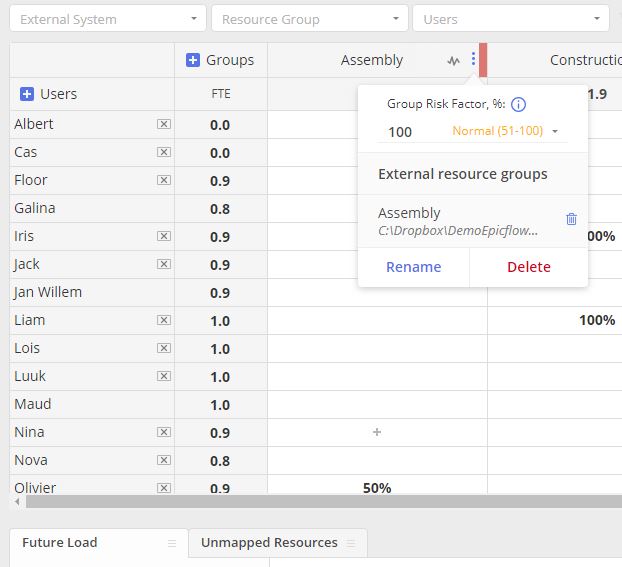Definition
Group Risk Factor parameter is a coefficient measured in percentages from 1 up to 200 and visually divided in next four groups:
- 1 – No risk
- from 2 up to 50 – Low
- from 51 up to 100 – Normal
- from 101 up to 200 – High
Any desirable value can be set in defined range by PM.
In general Group Risk Factor coefficient measures risk of discrepancy between initial task hours estimation and Spent hours in result of task accomplishment for the particular Resource Group or resources from it. It works in a similar way as Project’s Buffer but in prospective of buffer defining for the tasks of priority 80 assigned on particular group.
By default it always set as 100% which means that on task accomplishment we expect no delays occurrence but also that task wont be finished beforehand. It corresponds to a situation when we have a task with priority 80 and available buffer equal to the configured Project Buffer.
With Group Risk Factor equal to 1% – system will treat any task assigned on such group as one which will be done always in a time.
With Group Risk Factor equal to 200% – priority of the task 80 will correspond to situation when we have buffer twice more than for the task with Group Risk Factor 100% and the same priority 80.
Keep in mind that this parameter should be treated as an additional tool of your Resource Management configuration in multi-project environments. Any change of this value will lead for priority change in all projects where current group involvement is required.
Configuration
To configure Group Risk Factor
- Go to the Resource Management page
- Open Resource Group menu and proceed with new value input or selection of one of predefined levels.

Screen #1 – Resource Management – Group Risk Factor
